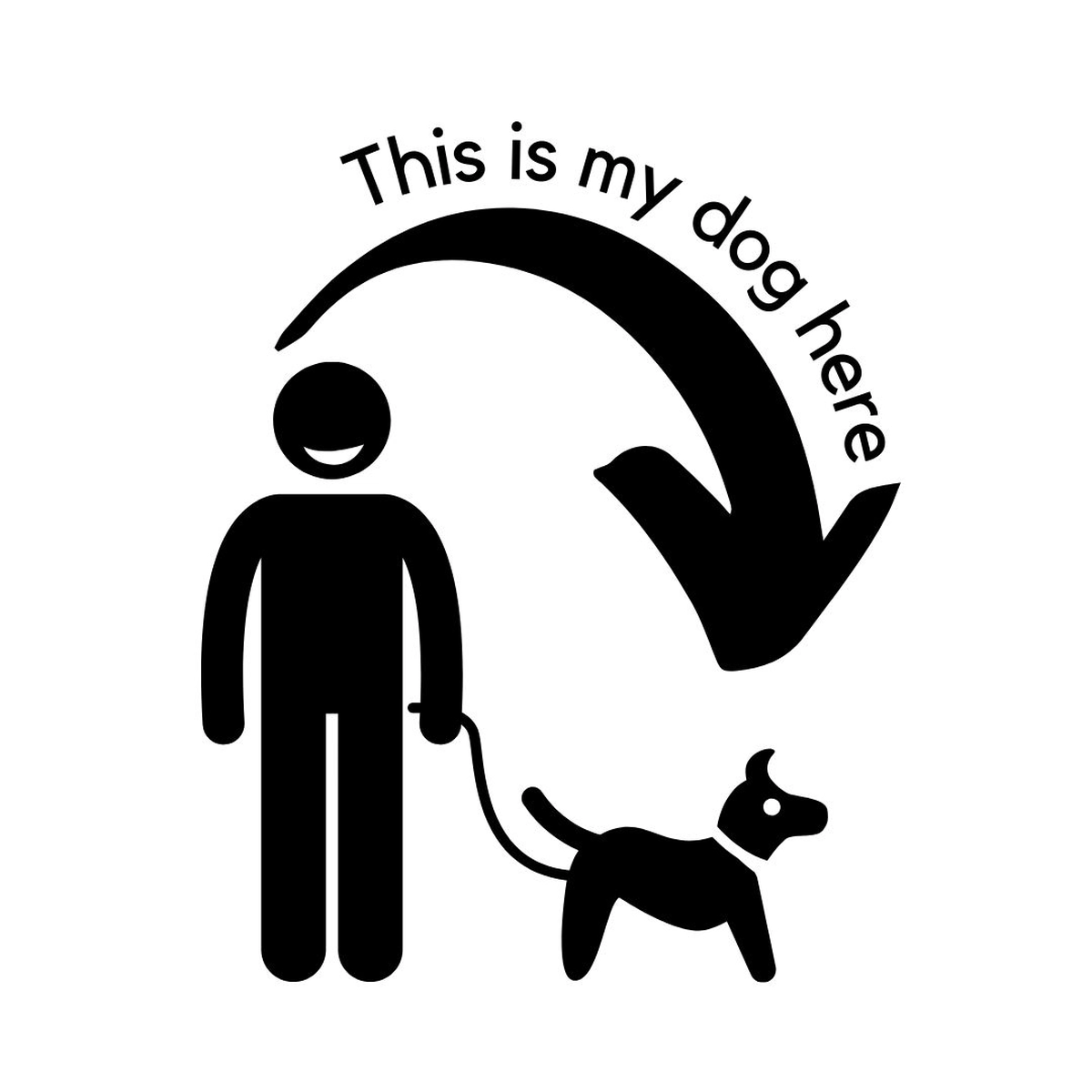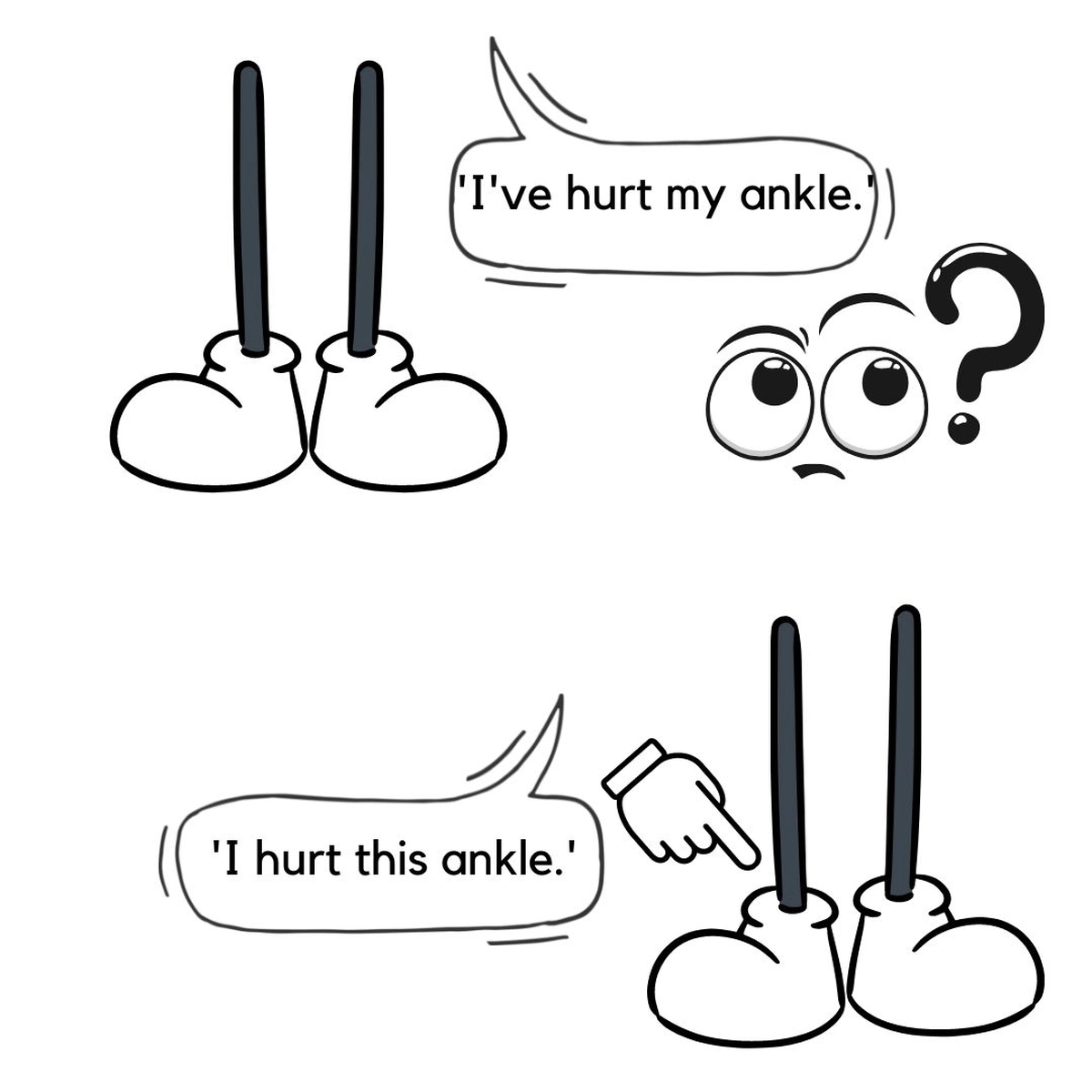Deictic expressions: definition
A deictic expression (deictic from Ancient Greek δεικτικός, deiktikós, 'capable of proof') is defined as any word or expression used to indicate the place, time, and the condition or situation of the speaker at the time of speaking.
Deictic expressions (also referred to as 'deictics') will typically include personal pronouns, demonstratives, verbs, and adverbs.
Deictic Expression Example A:
'I am here' includes 'I' (personal pronoun), and 'here' (an adverb of place). Both of these can be called deictic words because they indicate the speaker and where they are.
'I am here now' gives us who, where, and also when ('now').
Deictic Expression Example B:
'I am going to the cinema' gives us the who ('I'), and the where ('the cinema'). We don't have an exact 'when' (the speaker does not say 'now' or 'tomorrow'), but we can gather from the use of the present continuous that they will be going in the (near) future.
Three types of deictic expressions
There are three traditional categories of deictic expressions. Here are some deictic examples for you to look at:
Personal (who): 'I, you, we, he, she, they'.
Spatial or Local (where): 'here, there, that one there, this one here'.
Temporal (when): 'now, then, tonight, last month'.
Personal diectics (diectic pronouns)
The personal deictics expressions 'I/we' and 'you' typically refer to the person speaking and the person listening in a discourse. Third-person deictics 'he', 'she' and 'they' refer to those who are included in the conversation but are non-speaking.
Spatial deictics
Spatial deictic expressions refer to the 'where' of the speaker and / or participants; frequently used words are:
Temporal deictics
Temporal deictic expressions tell us more about when the participants are speaking and include the use of:
Tense
Time adverbials "now, then, today, tomorrow."
Time expression, such as in the evening, at midnight, on time.
Deictic expressions examples
Deictic expressions, also known as deixis, are words or phrases that rely on context and the speaker's perspective to convey meaning. They point to specific people, objects, locations, or times, and their interpretation depends on the situation in which they are used. Examples of deictic expressions include personal pronouns like "I," "you," and "he/she," which change meaning depending on who is speaking and who is being referred to. Other deictic examples include spatial words like "here" and "there," which shift meaning based on the speaker's location.
See if you can identify personal, spatial or temporal deictic expressions with these deictic examples:
Deictic Expression Example C:
'Are you going to join me?'
Deictic Expression Example D:
'We arrived here last night, I think he will join us tomorrow.'
Deictic Expression Example E:
'I'll be staying at this hotel until tomorrow.'
 Fig. 1 - Deictic expressions are words that rely on context to convey meaning.
Fig. 1 - Deictic expressions are words that rely on context to convey meaning.
'Are you going to join me?' has the personal deictic examples of 'I', 'you,' and 'me'. It also has temporal deixis in the future tense form 'going to', which gives us 'when', i.e. in the (near) future.
'We arrived here last night, I think he will join us tomorrow ' contains:
Temporal deixis ('last night' and 'tomorrow')
Spatial ('here') and
Personal ('We', 'I', 'he', and 'us').
Example E ('I'll be staying at this hotel until tomorrow' ) also demonstrates a subcategory of spatial deixis, which is called Proximal Deixis.
Deictic expressions: proximal deixis
Proximal Deixis is a deictic expression that indicates anything close to the speaker, and uses words like 'this', 'here', and 'now'. E.g. in 'This is my dog here', the speaker indicates their dog's proximity, or nearness, to them.

Fig. 2 - Proximal deixis indicates anything close to the speaker.
Deictic expressions: distal deixis
The other subcategory is called Distal Deixis, and this indicates whatever is distant from the speaker, as in, 'It's that tree over there'.
 Fig. 3 - Distal deixis indicates whatever is distant from the speaker.
Fig. 3 - Distal deixis indicates whatever is distant from the speaker.
Further deictic expressions terms:
What other deictic examples are there? Further to the above deictic categories of time, place and person, linguists such as Charles Fillmore, George Lakoff and Barbara Kryk have suggested the following:
social deixis,
discourse deixis
emotional deixis.
These last three categories of deixis are called “marginal” categories. Let's look at them in more detail below.
 Fig. 4 - Marginal deictic expressions include social, discourse and emotional.
Fig. 4 - Marginal deictic expressions include social, discourse and emotional.
What are marginal deictic expressions?
Marginal Deictic Expressions can be divided into 3 categories: social, discourse and emotional. Below are some deictic examples for you to explore.
Social deixis
Social deixis is when we use a term of reference to indicate social or professional status. In many languages there is a distinct change of form for second-person pronouns, to indicate familiarity or politeness.
Social Deictic Example :
Jan is talking to his friend in German and when he wants to say 'you' will use 'du' (you). When he is talking to his professor or supervisor he will more likely address them with 'Sie' (formal-you). In French, the forms would be 'tu' (informal) and 'vous' (formal) and in Italian 'tu' and 'Lei'. Japanese contains seven different forms of address, according to status (i.e: equal status, higher status, junior status, senior colleagues, professionals/academics, children, babies).
This way of addressing people is called the T-V distinction and is virtually non-existent in modern English.
Formality and familiarity in English are expressed in other ways, such as using forms of address, terms of endearment, formal and informal language.
Note the difference between these two deictic examples:
'May I offer you some tea, professor?' (a student or colleague addressing a lecturer).
'Tea, dear?' (a relative or friend addressing the same lecturer).
The use of the endearment 'dear' illustrates the level of closeness/familiarity. 'Professor' is an honorific used by those outside the familiar circle.
Honorifics are shared by many if not most languages and are used as terms of respect for people of social, professional, academic status.
Typical examples include Your Grace, Your Excellency, Mr President, Doctor, Maestro.
A personal aide might approach the president to say: 'Mr President, your car is here.' A colleague may remind a visiting lecturer: 'The conference will be starting in a few minutes, Doctor Lewes.'
A conductor's assistant who has news from the orchestra: 'Maestro, the first violinist has sprained her wrist.'
In other cultures such as Japanese, there may be several different grammatical functions to express registers such as politeness, respectfulness, humility and formality. In Japanese, there are three levels of politeness: plain, polite, and formal, and for each politeness level, there are two forms of respect: 'sonkeigo' or 'respect' language, and 'kenjōgo' or 'humble' language.
In the above deictic examples 'May I offer you some tea, professor?' and 'Tea, dear?', the honorifics might vary based on the degree of formality or familiarity. The student addressing the professor might use the terms '-san', '-sensei' or '-kyouju' after the professor's family name. The wife/partner instead might use 'anata' (literally 'you') or first name plus -chan instead of -san.
Discourse Deixis
Discourse Deixis, or Text Deixis, happens when we use deictic expressions to refer to something we are talking about in the same utterance. Imagine you have just finished reading a great story. You might show it to your friend and say:
'This is an amazing book'.
- 'This' refers to the book which you are telling your friend about.
Somebody mentions a film they saw earlier. You have also seen it, and you say 'That was a brilliant film.'
- Because the film has already been mentioned in the same conversation, you can use 'that' to refer back to it, instead of using 'this'.
The following are samples of discourse deictic expressions: earlier, later, the preceding months, the following weeks, in the following paragraphs, during next month, in the next chapter.
The philosopher HP Lyons suggests an expression can be both deictic and anaphoric at the same time: 'I was born in London, and I have lived here / there all my life'.
'Here' and 'there' refer back to London, so they function as anaphora; either of these can also function as deictics to indicate whether or not the speaker is currently living there.
Discourse deixis can easily be confused with anaphora.
'Max is a great painter; he's won awards. '
Instead of repeating the name 'Max' in 'Max won awards', we use 'he' to refer back to Max. So the pronoun 'he' functions anaphorically. (Anaphora mostly includes personal pronouns, demonstrative pronouns and pro-verbs like 'do').
Here's another example: 'Look at this painting; this is my favourite one.'
We see that 'this' refers to the painting and is therefore anaphoric.
Discourse deixis can refer to all expressions or phrases that 'point the way' or guide the reader through a text or conversation. When a deictic expression refers back to something already mentioned, it is anaphoric.
The linguist Fillmore suggests deictic pointing can be indicated in different ways and distinguishes two types of use: gestural and symbolic.
Gestural and symbolic deixis
Gestural deixis means a gesture is involved to explain or clarify the utterance. If X just says 'I sprained my ankle' we don't know which ankle is meant. If X tells us 'I sprained this ankle' while pointing to their right ankle, we immediately understand which ankle is hurt because X has shown us by pointing. This is an example of gestural deixis.

Fig. 5 - Gestural deixis includes gestures such as pointing.
In symbolic deixis, we don't need visual clues; it is enough to have a reference to a basic space or time. For example:
'I often go to that city'. We understand that in the idea of 'city' the speaker is referring to a specific city because they used 'that'.
Emotional deixis
Emotional deixis expressions (also known as Empathetic Discourse) refers to the speaker's emotional connection to the subject of discourse, which may be close or distant. Typical words used in this context include:
this (close).
that (distant).
verbs associated with emotion: like, love, hate, dislike, adore, etc.
Max the artist says, 'This is my favourite painting.' In this case, 'this' indicates emotional closeness to the speaker, Max.
But if Max finds a random badger roaming the kitchen and making a mess, he may feel less than happy, and his response is likely to be 'Get that badger out of the kitchen!'
So here, 'that' replaces 'this', demonstrating emotional distance (i.e. he wants the badger taken as far away as possible).
 Fig. 6 - Emotional distance is shown through the deictic expression that refers to the badger as 'that'
Fig. 6 - Emotional distance is shown through the deictic expression that refers to the badger as 'that'
Fillmore points out that the emotional meaning of 'this' and 'that' can change.
A says: 'I love that place'.
Deictic expressions - Key takeaways
A deictic expression indicates the location, time and/or situation of the speaker at the time of speaking.
Deictic expressions will typically include personal pronouns, demonstratives, verbs, and adverbs.
- There are three traditional kinds of deictic expressions:
Staff (who)
Spatial or local (where)
Temporal (when)
- Spatial / local deictics include proximal deixis (near the speaker) and distal deixis (far from the speaker).
There are three marginal categories of deictic expressions:
i. Social
ii. Discourse
iii. Emotional
Fillmore also suggests two types of deictic pointing: gestural and symbolic.
Similar topics in English
Related topics to Pragmatics













